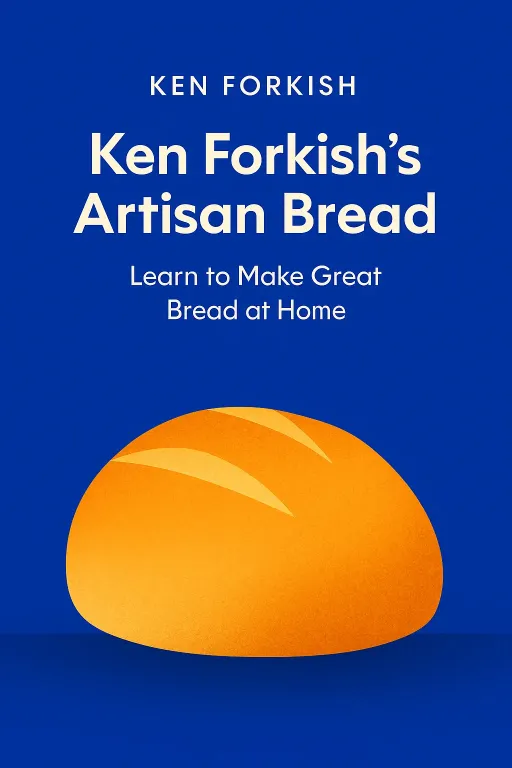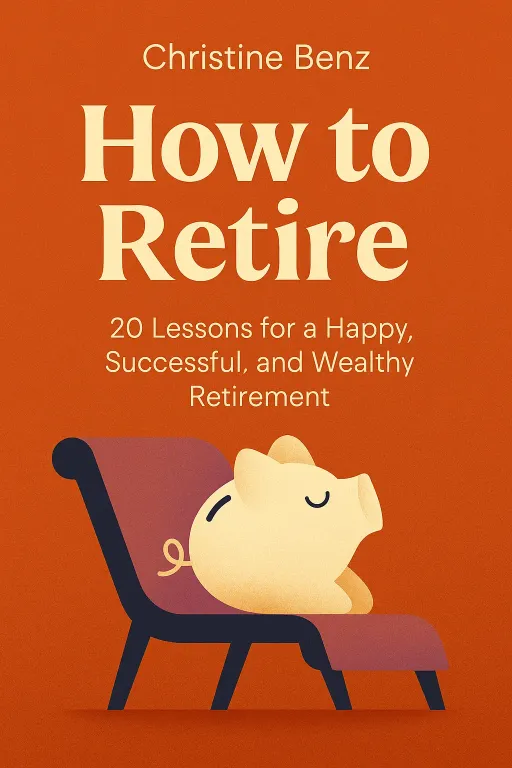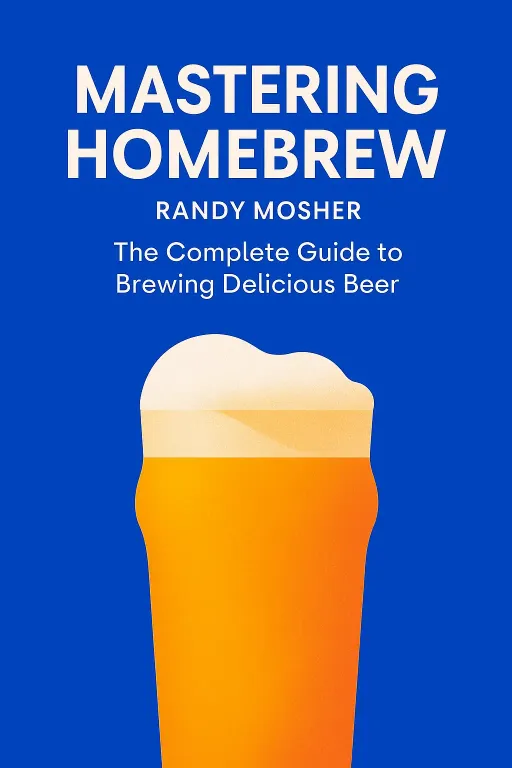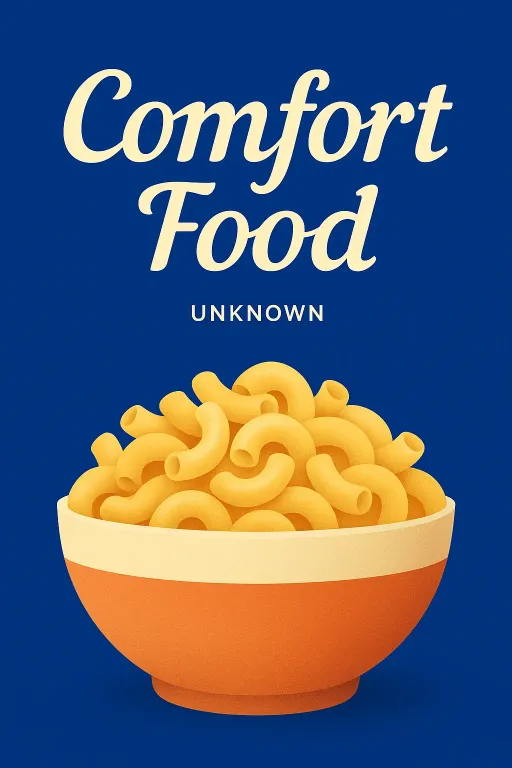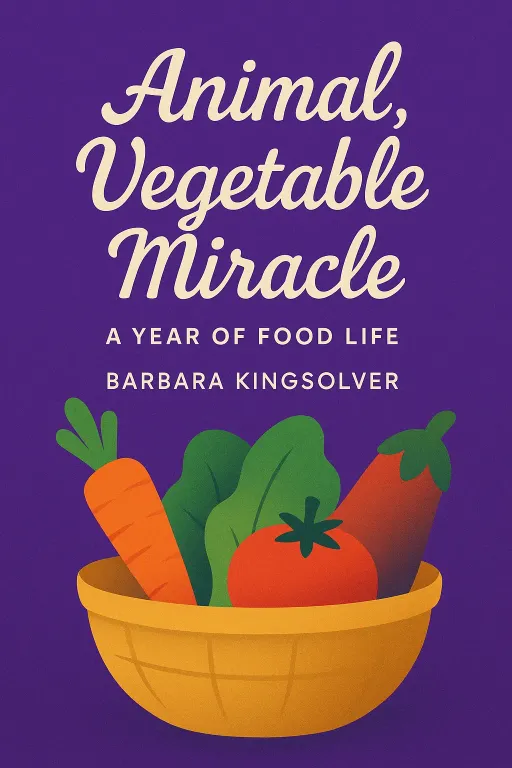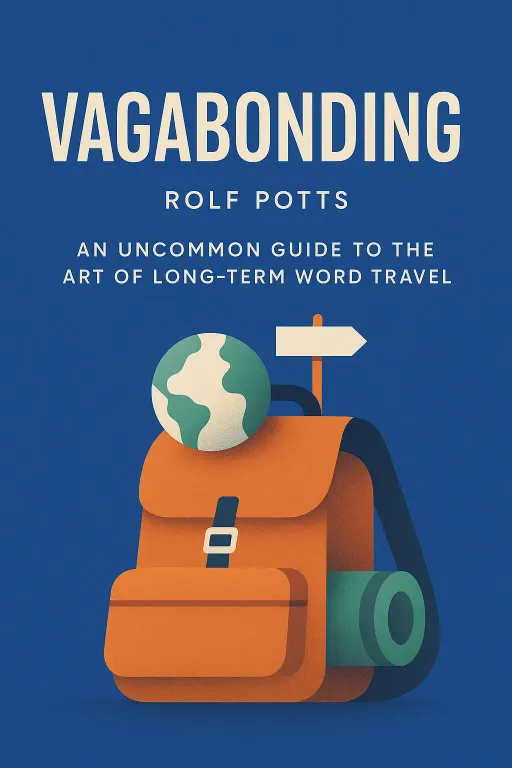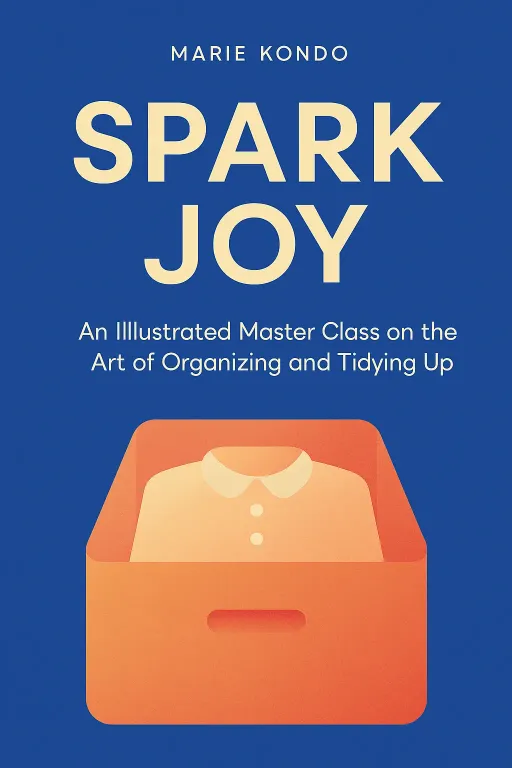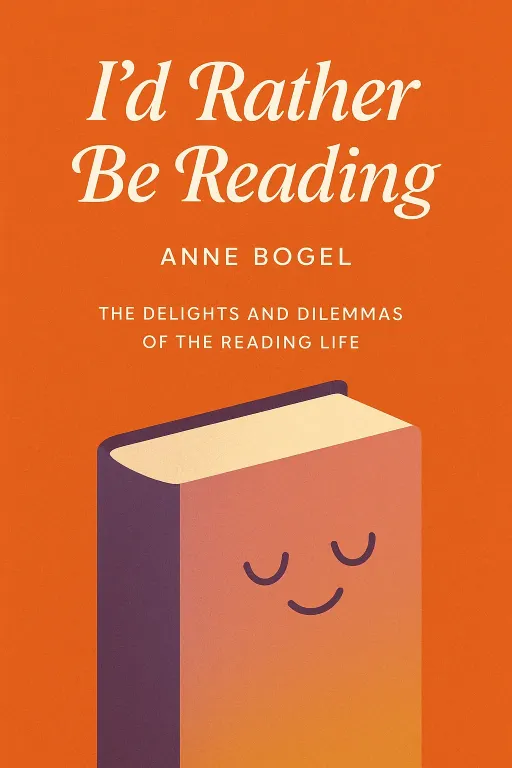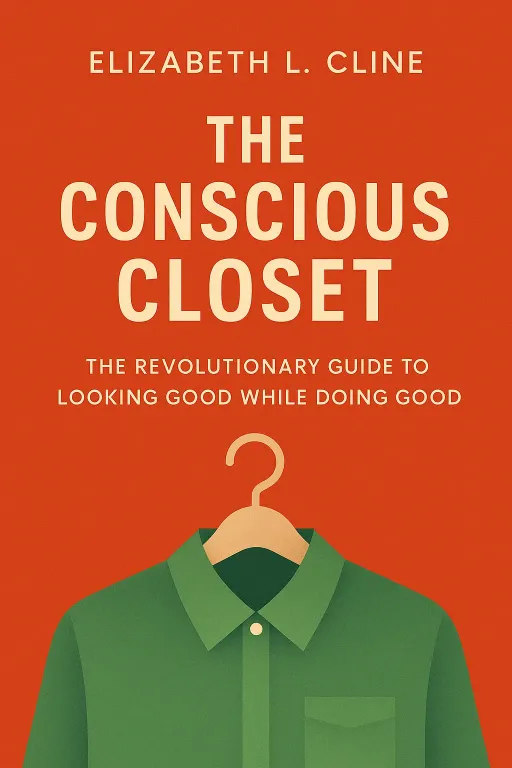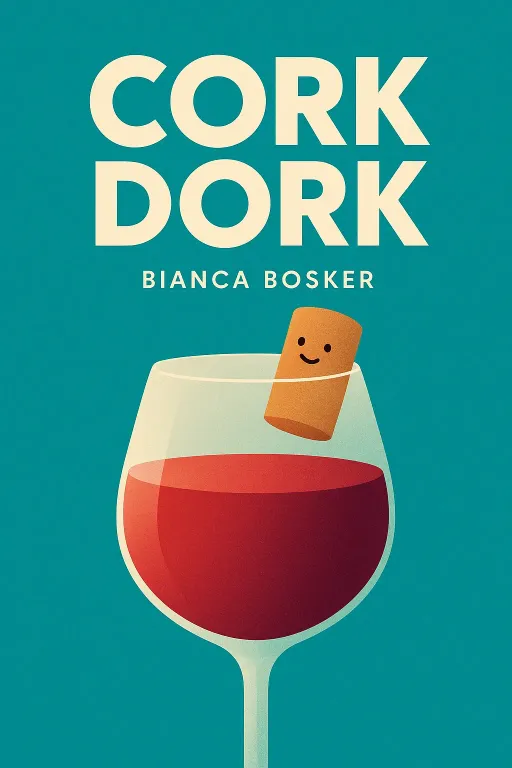
The Cork Dork Cult
12 minA Wine-Fueled Adventure Among the Obsessive Sommeliers, Big Bottle Hunters, and Rogue Scientists Who Taught Me to Live for Taste
Golden Hook & Introduction
SECTION
Rachel: Alright, Justine. Before we dive in, what's the most you've ever spent on a bottle of wine? And be honest. Justine: Oh, that's easy. Probably thirty bucks. And I definitely felt like a Wall Street tycoon doing it. I mostly just pick the one with the coolest-looking animal on the label. A penguin, a kangaroo... bonus points if it's wearing a monocle. Rachel: The monocle is a strong choice. That's actually the perfect place to start, because today we are talking about a world where the animal on the label is the least important thing. We're diving into Cork Dork by Bianca Bosker. Justine: I love that title. It perfectly captures that blend of nerdy and... well, drunk. Rachel: Exactly. And what's wild is that Bosker wasn't a wine person at all. She was a tech journalist, living a life, as she describes it, of sensory deprivation, staring at screens all day. She gets this glimpse into the world of elite sommeliers—these people who can sniff a glass and tell you the grape, the hillside it grew on, and the weather that year—and she becomes obsessed. Justine: So she quits her job? Just like that? Rachel: She quits her stable job to find out if she can become one of them. The book is this incredible, hilarious, and surprisingly profound journey into this subculture. It's been called the Kitchen Confidential for the wine world, and it was a New York Times Critics' Top Book of the year it came out. Justine: Okay, I'm in. What could possibly be so compelling about fermented grape juice that you'd throw your whole life at it? Is it really about the taste, or is it something else entirely?
The Seduction of Obsession: Deconstructing the Sommelier Cult
SECTION
Rachel: That is the exact question that drives the first part of the book. Bosker dives headfirst into this world, and what she finds is less of a hobby and more of a fanatical, all-consuming religion. These people aren't just enjoying wine; they are surrendering their lives to it. Justine: That sounds a little dramatic. What does that even look like in practice? Rachel: Well, in one of her first attempts to immerse herself, she goes out with a group of New York sommeliers. She's trying to keep up, tasting everything, taking notes. She ends up stumbling home, completely overwhelmed and sick. The next morning, she gets a text from one of the sommeliers she was with. He's already at a professional tasting, back at it. He texts her a picture of a row of glasses with the caption, "The relentless pursuit of deliciousness." Justine: Oh, wow. So while she's recovering, he's already on to the next level. That's intense. Rachel: It's a level of dedication that borders on pathology. She interviews a Master Sommelier—and we need to talk about this exam. The book points out there are more active Navy SEALs in the world than people who have passed the Master Sommelier exam. Justine: Hold on. More people have survived Hell Week than have passed a wine test? That cannot be right. Rachel: It's that difficult. It requires, on average, 10,000 hours of study, tasting over 20,000 wines. And Bosker shares this one quote from a Master Sommelier whose wife divorced him over his obsessive studying. He told Bosker, "Certainly, if I had to choose between passing my exam and that relationship that I had, I would still choose passing my exam." Justine: Okay, that's not a passion, that's a problem. Are they okay? Seriously, that sounds like a cult. What is the reward for that level of sacrifice? Rachel: The reward, as Bosker starts to understand it, is a different way of experiencing the world. They believe they are training their senses to a level of acuity that most of us can't imagine. In a life that's increasingly digital and numb, they're pursuing a life that is analog, vivid, and full of sensory data. But to get there, she has to start at the absolute bottom. Justine: What's the bottom? Rachel: She gets a job as a "cellar rat." It's exactly what it sounds like. She's in a damp basement, hauling heavy boxes, organizing inventory, and getting paid next to nothing. In one scene, she's trying to learn how to decant an expensive bottle of wine for a dinner service and she's so clumsy she ends up burning herself with the candle and making a huge mess. It's this brutal, humbling entry point. Justine: I can see that. It's like wanting to be a rock star and starting by cleaning the tour bus toilets. It grounds the whole high-minded pursuit in something very real and, frankly, kind of miserable. Rachel: Precisely. It shows that this world of elegance and "bottled poetry," as Robert Louis Stevenson called it, is built on a foundation of grueling, unglamorous work and an almost frightening level of obsession.
Hacking the Senses: The Science and Psychology of Taste
SECTION
Justine: Okay, so they're incredibly dedicated. I'll give them that. But here's the million-dollar question, and I know the book dives into this: Is any of it real? Or are they just the world's best-trained pretenders? Rachel: That is the crisis of faith that hits Bosker midway through her journey. She starts to wonder if the entire industry is, as one Princeton economist she quotes calls it, "intrinsically bullshit-prone." So, she does what any good journalist would do: she turns to science. And what she finds is fascinating and kind of hilarious. Justine: Give me the science. Can they really taste the difference, or is it all in their heads? Rachel: It's mostly in their heads! But not in the way you think. She uncovers this famous study by a researcher named Frédéric Brochet. He took a group of enology students—people training to be wine experts—and gave them two glasses of wine to describe: one white, one red. Justine: Let me guess, there's a twist. Rachel: The twist is that both glasses contained the exact same white wine. He had just dyed one of them red with an odorless food coloring. The experts described the white wine with words like "floral" and "honey." For the red-dyed one, they used words like "cassis," "raspberry," and "cherry." Their brains saw red and completely overrode what their noses were smelling. Justine: Whoa. So their eyes basically told their noses what to smell. That's incredible. Rachel: It gets better. In another experiment, he gave them the same mid-range Bordeaux in two different bottles. One was labeled as a cheap table wine, the other as a prestigious Grand Cru. They praised the "Grand Cru" as complex and balanced, and dismissed the "table wine" as weak and flat. Same exact wine. Justine: So my brain is the director, and the price tag is the special effects budget? A ninety-dollar bottle gets the full Hollywood treatment, while the nine-dollar bottle gets a shaky cam and a bad script? Rachel: That is a perfect analogy. Bosker learns that flavor isn't something that happens on your tongue. It's an experience constructed by your brain. The information from your taste buds and olfactory receptors is just part of the input. The brain takes that and mixes it with your expectations, the price, the color, the setting, your memories... everything. Justine: That explains why wine tastes better on vacation. It's not the wine; it's the fact that you're not thinking about your email inbox. Rachel: Exactly. And this is where the book gets really interesting, and I know from the reviews that this is a part some readers found a bit dense, but it's crucial. She visits neuroscientists and even gets her own brain scanned in an fMRI machine. They find that the brains of experts, like sommeliers, don't just perceive more; they process the information differently. When a novice tastes wine, the emotional centers of the brain light up. When an expert tastes wine, the parts associated with memory, analysis, and high-level cognitive function go wild. Justine: So it's not that they have super-senses. They have a super-brain, or at least a highly trained one. They've built a massive internal library of smells and tastes to cross-reference. Rachel: They've built a classification system in their minds. It's a skill, not a magical gift. And that's what gives Bosker hope. If it's a skill, it means she can learn it. It means anyone can. You just have to train your brain to pay attention.
The Subjectivity of 'Good': Finding Pleasure in a World of Pretension
SECTION
Rachel: And that's the paradox Bosker lands on. If our brains can be so easily tricked by a price tag or a color, what does "good" even mean? This question leads her to one of the most insane events in the wine world: a festival called La Paulée. Justine: La Paulée. Sounds fancy. What is it? Rachel: It's an extravagant, week-long celebration of Burgundy wines, culminating in a massive gala dinner. But here's the catch: it's BYOB. Justine: Oh, I like a BYOB party! I can bring my thirty-dollar penguin wine. Rachel: Not exactly. This is like a BYOB for billionaires. People bring priceless, legendary bottles from their private cellars to share and show off. The pressure is immense. Bosker describes her panic trying to choose a bottle that won't get her laughed out of the room. She ends up spending nearly three hundred dollars on a single bottle of white Burgundy. Justine: A BYOB where you're judged for bringing the wrong vintage? That is the most stressful party I have ever heard of. It sounds like the opposite of pleasure. Rachel: And that's what she expects. She walks into this giant hall, and it's chaos. The organizer gives a toast to "resounding intoxication." People are running from table to table, pouring splashes of unobtainable wines, there's loud music, dancing on chairs. It's a bacchanal. She sees celebrity sommeliers, famous chefs, hedge-fund managers... all caught up in this frenzy. Justine: So is anyone actually tasting the wine? Or is it just about the performance of it all? Rachel: That's the revelation. She realizes it's not really about the wine's objective quality. She tastes dozens of legendary wines that night, but it's all a blur. The real pleasure, she discovers, comes from the context. It's the story, the community, the shared madness of the event. When she finally opens her expensive bottle and shares it with the people at her table, the joy comes from that act of connection, not from a perfect, analytical tasting note. Justine: It's the experience, not the object. The pleasure is in the performance. Rachel: Exactly. She realizes that trying to find the single, objectively "best" wine is a fool's errand. The pleasure we get from things is deeply personal and hopelessly subjective. And instead of fighting that subjectivity, the book suggests we should embrace it. Knowing the story behind the wine, sharing it with friends, drinking it in a beautiful place—those things are as much a part of the flavor as the grape itself. Justine: That's a much healthier way to look at it. It takes the pressure off. You don't have to be an expert to have a "good" experience. You just have to be present for it.
Synthesis & Takeaways
SECTION
Justine: So after all this—the sommelier cult, the brain science, the crazy billionaire parties—what's the final takeaway? Should I still just buy the wine with the cute penguin on it? Rachel: The book suggests you absolutely can, but now you can do it with intention. The point of Bosker's journey wasn't to become a wine snob. It was to prove that taste is a muscle, and anyone can train it. Justine: And training it doesn't mean memorizing a thousand obscure French villages. Rachel: Not at all. It just means paying attention. Bosker's journey shows that dedicating yourself to a sensory experience—really focusing on what you're smelling and tasting—literally rewires your brain. The fMRI scans at the end of the book confirm it. Her brain looks different after her training. It's more active, more engaged. Justine: Wow. So she actually changed her brain. Rachel: She changed her brain, and in doing so, she changed her life. The book's ultimate message is that the pursuit of deliciousness isn't about finding the most expensive or highly-rated thing. It's about waking up your own senses. The ultimate "good" isn't a ninety-nine-point bottle; it's a life lived with more sensory awareness, more vividness. Justine: I love that. So the challenge for us isn't to learn a bunch of fancy tasting notes. It's just to... pay attention. Maybe tonight, I'll actually try to describe my cheap-and-cheerful wine instead of just gulping it down while scrolling through my phone. Rachel: That's the whole point. It's an invitation to live for taste, in every sense of the word. Justine: A great reminder to slow down and savor the moment. If you've tried training your senses or have a favorite "cool animal" wine, we'd love to hear about it. Join the conversation and share your story with the Aibrary community. Rachel: This is Aibrary, signing off.
